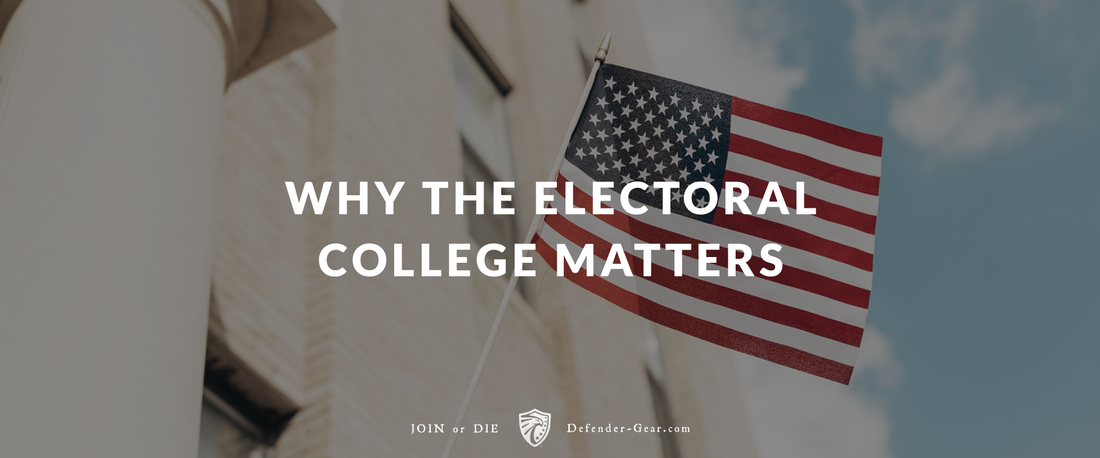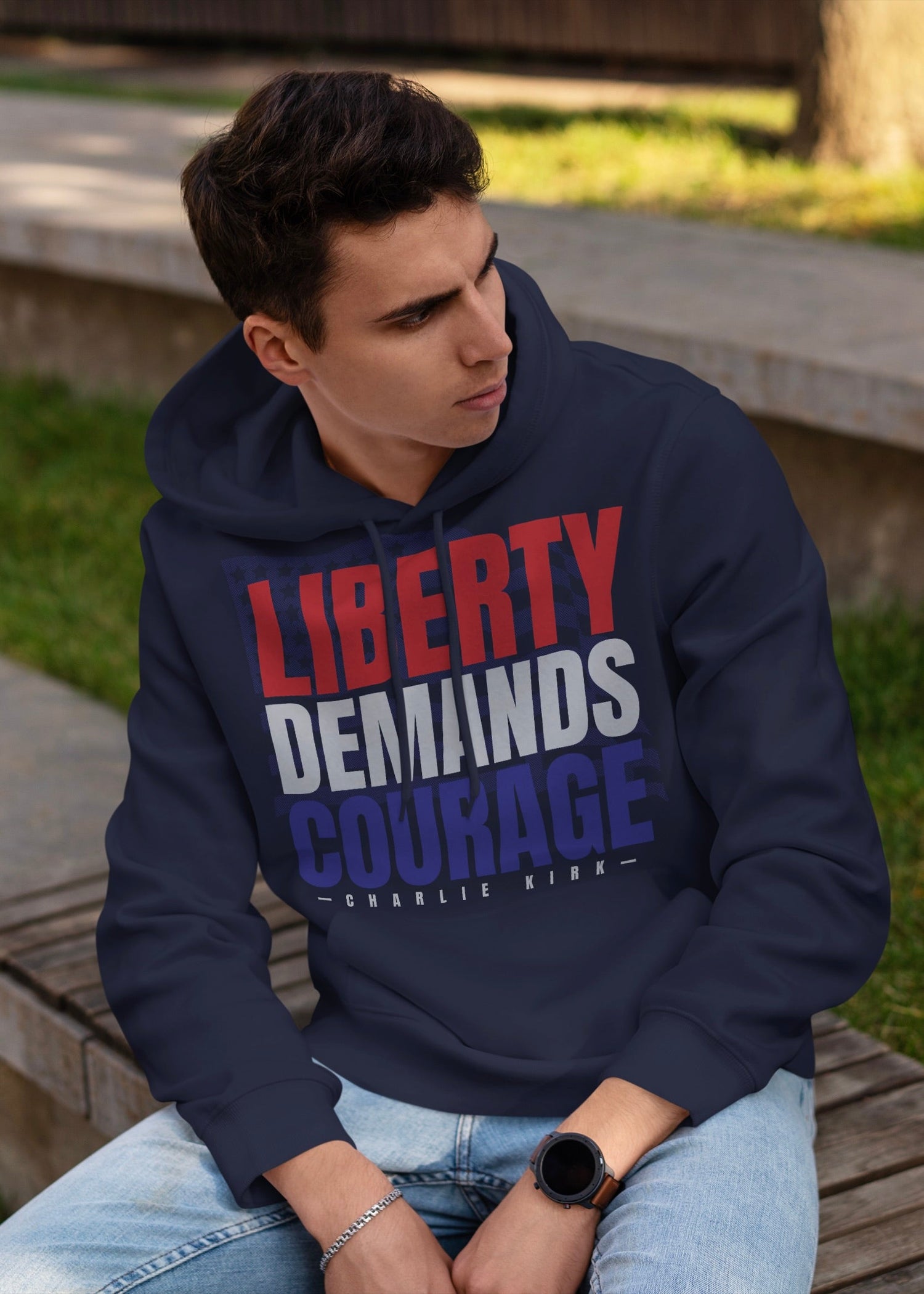
Why the Electoral College Matters
Every four years during the presidential election we hear about the Electoral College. Most Americans have no idea what it is, why it is important, or the purpose behind it.
When the founding fathers decided on how to elect a president, there were different views. Not everyone agreed with the system we have today. James Madison was one who preferred the popular vote for the election of the president. Meanwhile, others like Alexander Hamilton preferred the Electoral College to give smaller states a perceived equality in voting power. Therefore, the Electoral College was born and exists for the latter.
Since states don’t possess an equal population, the Electoral College ensures that our country is not ruled by the large metro areas.
Imagine if our president was chosen by folks in Miami, Philadelphia, Los Angeles, New York, Dallas, Atlanta, and Chicago?
That is exactly what the founders wanted to avoid.
They knew that the playing field needed to be leveled so that every state had a voice regardless of population. For instance, the smallest state in terms of population and electors is Wyoming with 3, which is one vote to every 135,000 voters. California, however, has 55 electoral votes, which is one vote for every 411,000 voters. Therefore, the smaller states do pack a punch.

The National Popular Vote
Despite the founder’s establishment of the electoral college, some states want to eliminate the Electoral College. But that could destroy what makes our country work.
The National Popular Vote Interstate Compact (NPVIC) plan is the latest in a long line of schemes designed to replace the Electoral College. According to nationalpopularvote.com, the compact will guarantee the Presidency to the candidate who receives the most popular votes across all 50 states and the District of Columbia, and completely dismantle the Electoral College.
So far, 15 states - California, Colorado, Connecticut, Delaware, Hawaii, Illinois, Massachusetts, Maryland, New Jersey, New Mexico, New York, Oregon, Rhode Island, Vermont, and Washington - and the District of Columbia, representing a combined 196 electoral votes, have approved the proposed cocmpact. With those supporters, the NPVIC is 73% of the way to its goal of 270 votes.
Bradley A. Smith, former Chairman of the Federal Election Commission said,
“Our system for electing a president has worked pretty well. There is no real case being made that it will work better if changed—only that it will look nicer if one subscribes to one particular vision of how democracies should work.…We are so accustomed to stable, generally good government that we sometimes forget that failure of government structures is historically much more common than success.…[W]e tinker with our success at our peril.”
By moving to a national popular vote, we would be destroying one of the foundational checks and balances in our country. The interests of rural and small-town Americans would be abandoned for those of urban elites.
If we turn back to one of the influential leaders in our country, James Madison said democracies are "incompatible with personal security or the rights of property; and have in general been as short in their lives as they have been violent in their deaths."
America was set up as a republic, filled with numerous checks and balances to prevent one group - even the majority - from gaining power and using it to punish or exclude everyone they didn't like.
Swing States
Now here is where the “swing states” come in. There are a certain amount of states that are not consistently republican or democrat. For instance, a state could elect a republican governor during the same election where they give all of their electoral votes to the democratic candidate for president, or maybe they consistently waffle from supporting one party to the other in successive elections.
Swing states typically get the majority of the campaign stops, advertisements, and overall partisan media. Traditional swing states tend to be Colorado, Florida, Iowa, Michigan, Ohio, Nevada, New Hampshire, North Carolina, Pennsylvania, Virginia, and Wisconsin.
The rest of the states are considered “safe states” because they typically support one of the parties. When you think about electoral votes, it is these states that ultimately determine the winner because of their inconsistent partisan track records.
If each state has a certain number of electoral votes, do all have to go to one candidate?
Great question! Every state but two have a winner-take-all system – Maine and Nebraska. This means that when the popular vote is counted all of the electoral votes must be given to a candidate. Electoral votes in Maine and Nebraska recently split twice. In 2008 when Nebraska, normally a republican leaning state gave four electoral votes to John McCain and one to Barak Obama. In 2016, we saw Maine, normally a democratic leaning state, give one vote to Donald Trump and the rest to Hillary Clinton.
What determines how many electoral votes each state has?
The number of electoral votes is determined by taking the number of seats in the US House of Representatives and adding two electors for the senators the state has in the US Congress. The number of representatives can change every time a US Census happens and determines the state population which then dictates districts and ultimately how many congressmen and women should be able to represent a state. If you were curious as to why another census is taking place, that’s why besides funding for programs based on population need.
Each state has its own way to elect and determine its electors. Electors may be elected by state legislatures or appointed by parties themselves.
In Pennsylvania, the campaign committee of each candidate names their respective electoral candidates. In some states like Oklahoma, Virginia, and North Carolina, electors are nominated in party conventions. The ultimate goal is to ensure that they have avoided having “faithless electors.”
Faithless Elector
This term is important as there are many states where the elector does not necessarily have to vote along with the popular vote of their district or state, and when it happens they are labeled a “faithless elector.”
The “faithless elector” has happened 164 times in US History. It happened with seven electoral votes in the last election. Two electors went away from President Trump while five slid over and put in votes against their districts who voted for Hillary Clinton. However, for the most part, the electors follow the vote of their districts.
If I were you, I would have a pretty important question about now. Let’s see if we are on the same page.
If an elector does not have to follow the popular vote in their district, why do we even vote?
Great question.
The harsh reality is that Americans indirectly elect the president. That is why if you listen closely after election results are posted you will hear comments about the meeting of the electors. They come together and officially cast their votes the first Monday after the second Wednesday in December. The results are counted by Congress the first week of January before a joint meeting of the Senate and House of Representatives, which is presided over by the current vice president.
If an official majority (270 electoral votes) is not met, Congress turns itself into a presidential election session, where one vote is assigned to each of the 50 states, excluding the District of Columbia. The president is then elected, and the inauguration happens on January 20th.
When you think about liberty, freedom, and what our forefathers fought for, the Electoral College remains intact because every person and state needs to have an equal vote. The founders were focused on equality at every turn. Men and women have given their lives for the freedoms we hold dear and one of them is having a voice to vote.
Our votes add up to move electors to apply their votes. If we did not head to the polls, we would be trusting Congress to elect the president. I do not know about you, but I think that is a scary proposition.
As we move a little closer to November each day, know it will take all of us to cast our votes, put our freedoms in action, and let our voices be heard. Regardless of who wins, we will trust the process our founders established and be thankful for all who have given their lives so that we can play a part in electing the leader of the greatest country in the world.
Sources
https://en.wikipedia.org/wiki/United_States_Electoral_College
https://www.latimes.com/nation/la-na-faithless-electors-2016-story.html
https://www.history.com/news/electoral-college-founding-fathers-constitutional-convention


